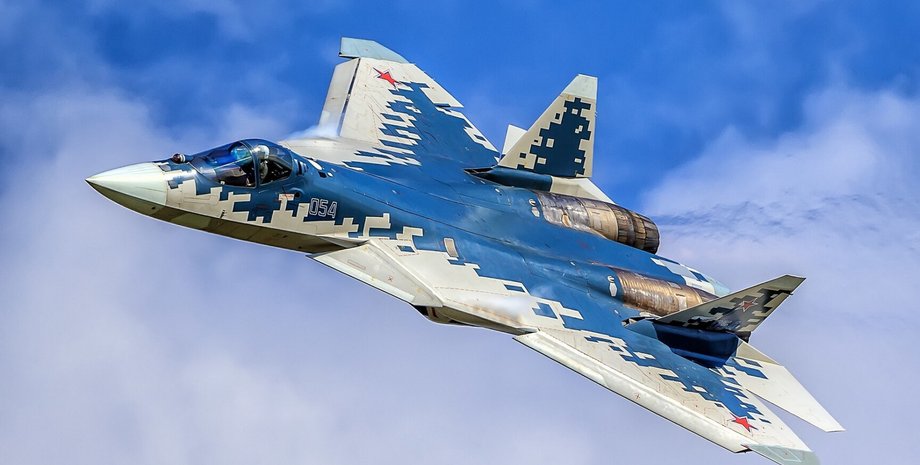
 By Victor Duda
By Victor Duda
Will Russia handle this challenge? Drones and fighters from the AI will reduce Russia's dependence on a small elite flight composition, as well as compensate for the shortcomings in the personnel support and training system that have long inhibited the development of the Russian army. Focus has translated the article of security and military analyst Harrison Cassa on The National Interest. CASS drew attention to the world races on the inclusion of AI systems in modern weapons.
In the article "Why Russian WCCs seek revolutions in artificial intelligence" the analyst explained whether the Russians are capable of a jerk and what is the cause of such a hurry. As part of the modernization, seeking not behind the US and China, Russia's airspace forces began to actively experiment with artificial intelligence.
Moscow acknowledges that AI is not just a trend, but a military need to preserve at least relative parity with world powers, as well as perhaps the only tool capable of compensating for the obvious shortage of resources, industrial potential and human reserves. In Moscow, the AI is considered as the most important "factor of power". Russia's airspace forces are particularly active in combat aircraft, drones, targeting and management systems.
Perhaps the most famous project in the field of military AI is considered to be the drone of the OKB dry C-70 "hunting". The C-70 is an inconspicuous UAV, created as a "faithful drive" for the fifth-generation fighter Su-57. This concept is similar to the US program Collaborate Combat Aircraft (CCA), where drones are integrated with F-35 and promising F-47 NGAD.
According to the design, the C-70 should use the AI for flight along with manned aircraft, exchange of data on goals, intelligence and even the task of shocks with limited human participation. How close is Russia to create a real connection of piloted and unmanned aviation is unclear: the Kremlin hides the details of its progress.
But the very idea of autonomous Russian shock drones, capable of acting without human control, causes serious concern to US strategists - or, if you want, ethics. C-70 is by far not the only direction of application of AI in the CCS. Russian engineers also develop the concepts of "swarm" of drones - numerous UAVs under the control of machine learning algorithms, capable of jointly overcoming enemy air defense.
The elements of this concept have already been shown in the sky above Ukraine, where Russian Drons-Kamikadze, due to their number, overloaded the air defense systems, which helped some of the drones and rockets to break into the goals. The war in Ukraine gave Moscow a valuable opportunity to gain practical experience in the use of semi -autonomous drones for intelligence and the task of blows. Russia is also experimenting from the AI in the pilot cab.
The fifth-generation fighter Su-57 will be equipped with a second pilot system based on AI, which reduces the load on humans. Such a system is able to control the conditions of flight, offer maneuvers and release the pilot's attention to make more important decisions.
Although this solution is far from complete autonomy, its integration reflects the global trend towards the combination of human intuition and machine computing capabilities - a process that is gradually happening in all the leading armies of the world. The consequences of the introduction of AI in Russian aviation are of serious strategic importance.
Drones and AI planes will reduce the dependence of the Russian Federation on a few elite pilots, compensating for the weaknesses in personnel and training. In addition, the AI makes an uncertain factor for opponents: if it is unknown whether a person or machine runs a plane, it complicates the choice of answer tactics. At the same time, there will usually be no time to determine this fact in real combat.
Of course, Russia faces the same difficulties as other AI armies, as well as its specific problems. In particular, Western sanctions have deprived Moscow access to the modern semiconductors necessary for the development of AI technologies. The Russian industry is also at low rates: there are only a few SO-57s in the form, while more than 1,200 F-35 fighters have already been armed. Therefore, the large -scale integration of the AI into Russian aviation is still a distant dream than reality.
Harrison Cass is a senior author of the defense and national security department at The National Interest. CASS is a lawyer and a former political candidate who joined the US Air Force as a trainee pilot and was then demobilized for health. It specializes in the military strategy, the aerospace industry and global security issues. Harrison has obtained a doctor of law at Oregon University and a master's degree in global journalism and international relations at New York University.










All rights reserved IN-Ukraine.info - 2022